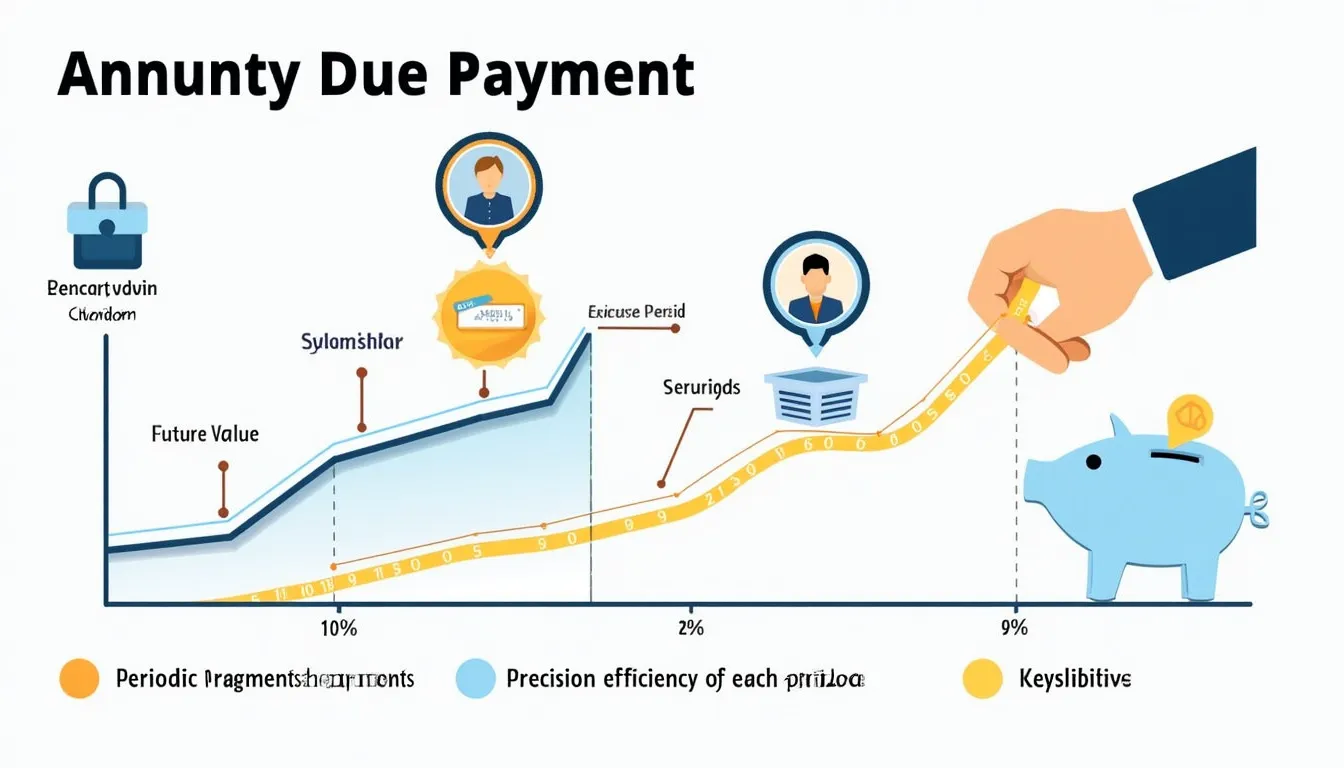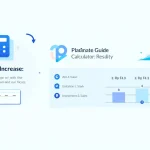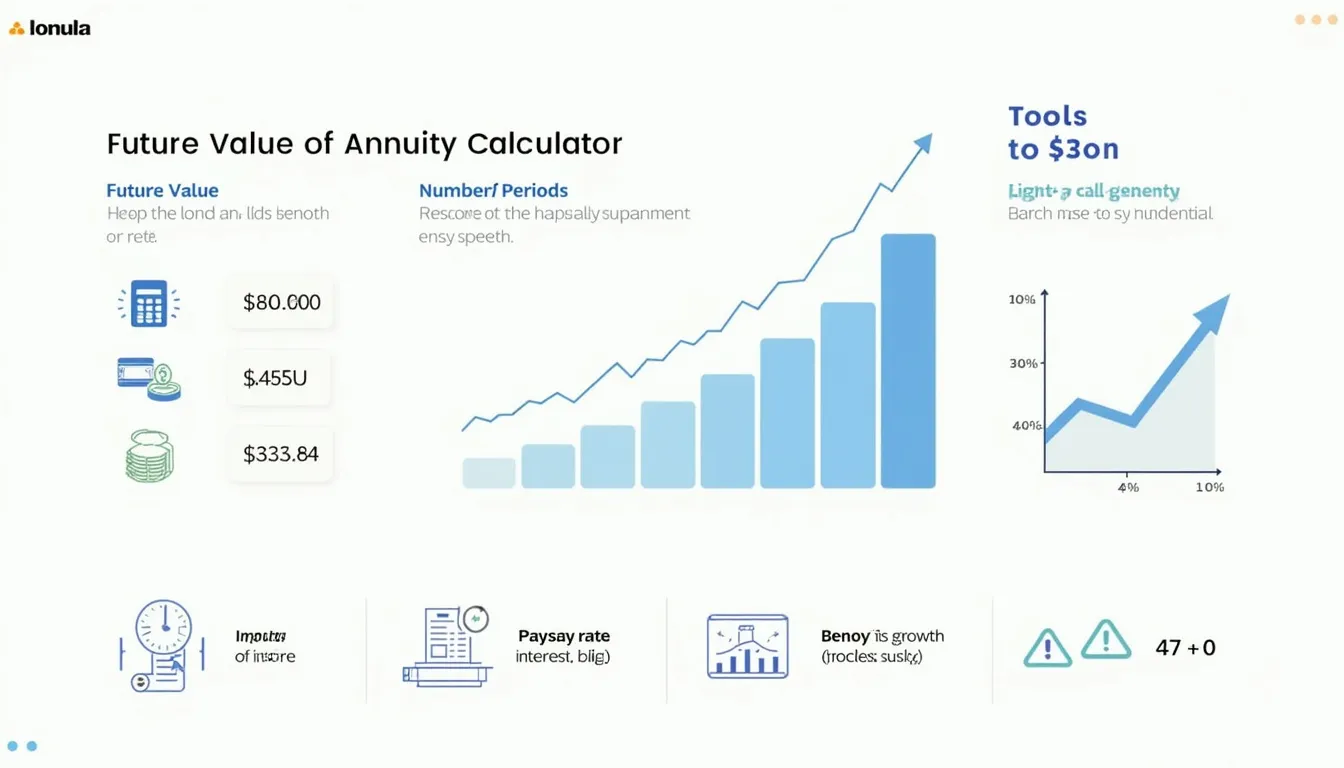Annuity Due Payment Calculator
Is this tool helpful?
How to use the tool
- Future Value (FV) – type the amount you want at the end. Example A: $250,000. Example B: $75,000.
- Rate Per Period (r) – enter the periodic interest in percent, then divide by 100 in the formula. Samples: 6 % or 4.5 %.
- Number of Periods (n) – supply how many equal payments you will make. Samples: 20 or 10.
- Press “Calculate” to see the required payment, shown to two decimals.
Formula used
For an annuity due (payments at the period’s start):
$$\text{Payment}=FV rac{r}{(1+r)^{n}-1} rac{1}{1+r}$$- FV = desired future value
- r = rate per period (decimal)
- n = number of periods
Worked examples
- Example A: FV = 250,000; r = 0.06; n = 20 $$P=250{,}000 rac{0.06}{(1.06)^{20}-1} rac{1}{1.06}\approx\$6{,}410$$
- Example B: FV = 75,000; r = 0.045; n = 10 $$P=75{,}000 rac{0.045}{(1.045)^{10}-1} rac{1}{1.045}\approx\$5{,}852$$
Quick-Facts
- Annuity sales hit $357 billion in 2023 (LIMRA, 2024).
- Payments occur at period start, giving one extra compounding period (CFA Institute, 2023).
- Typical fixed annuity yields 3–7 % yearly (Morningstar, 2024).
- Calculator suits level-payment, fixed-rate annuities (FINRA, 2023).
- Federal Reserve: annuities = 7 % of household financial assets (Federal Reserve, 2023).
FAQ
What is an annuity due?
An annuity due is a series of equal payments made at each period’s start, earning an extra compounding interval (CFA Institute, 2023).
Why does timing matter?
Starting payments sooner adds one full period of growth to every deposit, lowering the required contribution for the same goal (Bodie & Merton, 2021).
Can I use monthly or quarterly inputs?
Yes. Use the matching periodic rate and total periods—for monthly, divide the annual rate by 12 and multiply years by 12 (Investopedia, 2024).
How does inflation affect my target?
Estimate a real rate: subtract expected inflation from the nominal rate; then plug that lower r into the formula (Bureau of Labor Statistics, 2024).
What if my rate changes over time?
This tool assumes a fixed rate. For variable rates, recalculate each time the rate resets or use a spreadsheet with varying r (FINRA, 2023).
Is the payment tax-deductible?
Retirement annuity contributions may qualify for tax deferral, but deductibility depends on plan type and IRS rules (IRS Publication 590, 2023).
How accurate is the calculator?
It uses the exact closed-form annuity-due equation; rounding to cents causes negligible error for typical balances (NIST Handbook 44, 2022).
Expert insight
“Payments at the beginning of each period accumulate one extra interest period, enhancing growth potential” (CFA Level I Curriculum, 2023).
Important Disclaimer
The calculations, results, and content provided by our tools are not guaranteed to be accurate, complete, or reliable. Users are responsible for verifying and interpreting the results. Our content and tools may contain errors, biases, or inconsistencies. We reserve the right to save inputs and outputs from our tools for the purposes of error debugging, bias identification, and performance improvement. External companies providing AI models used in our tools may also save and process data in accordance with their own policies. By using our tools, you consent to this data collection and processing. We reserve the right to limit the usage of our tools based on current usability factors. By using our tools, you acknowledge that you have read, understood, and agreed to this disclaimer. You accept the inherent risks and limitations associated with the use of our tools and services.







